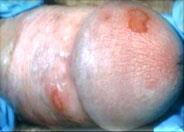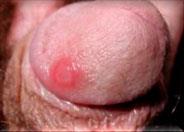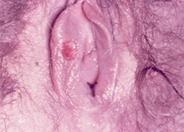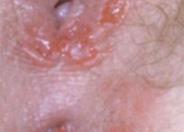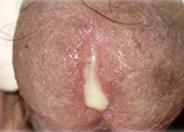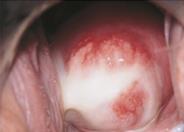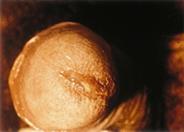STD Treatment


Dr Hameed Ibrahim KHOKAR chief physician and director KHOKAR group of Clinic for SEXUAL DISORDERS & INFERTILITY, receiving token of appreciation from CPM Kerala State Secretary Sri. Kodiyeri Balakrishnan in the presence of Malayalam film superstar Padmasri Mohanlal, for his distinquished services, at a mega event organised by Deshabhimani daily, in Thrissur.

Dr Hameed Ibrahim KHOKAR chief physician and director KHOKAR group of Clinic for SEXUAL DISORDERS & INFERTILITY, receiving token of appreciation from honourable Chief Minister Sri. Pinarayi Vijayan, for his distinquished services, at a mega event organised by Deshabhimani daily, in Thrissur.
Definition
Sexually Transmitted Infections/Diseases (STD) Treatment
Gonorrhoea
Definition
Gonorrhoea is caused by Neisseria gonorrhoea, which is a bacterium that has the
tendency of developing and multiplying in the warm and moist parts of our body, including
the rectum, urethra, cervix or mouth. The cervix is the commonest area of the
development of the bacterium, thus causing intense infection in women. The more
alarming fact is that the infection can easily spread to the uterus and the fallopian tubes, causing pelvic inflammatory disease leading to infertility. Sexual intercourse is the easiest
way to contaminate the germ and the infection. However, Gonorrhoea may also pass on to
the mouth or throat of one partner from the genitals of another in case of oral sex. Anal
intercourse is the way to be infected with Gonorrhoea of the rectum. In pregnant women, gonorrhoea can be passed from an infected woman to her newborn infant during delivery if left untreated.
At the preliminary stage, in women, it is hard to detect gonorrhoea, as the symptoms are
very mild and hard to notice. About 2 to 10 days after a woman have had sexual
intercourse with a person already infected with the disease, she may start showing visible
symptoms. But ther are also cases when some patients have gone on for months without
having ny manifestation of the infection.
In both men and women, if gonorrhoea is left untreated, it may spread locally, causing epididymitis or pelvic inflammatory disease or throughout the body, affecting joints and heart valves.
Discharge of Pus in gonorrhoea from the penis
Treatment for Gonorrhoea:
Antibiotics can cure gonorrhoea but commonly it's seen that in certain percentage of cases treated with antibiotics, resistance to antibiotic is developed due to wrongly prescribed class of antibiotics with incorrect treatment duration, the disease is not fully cured and it enters a remnant stage which we call it as Remnant Chronic gonorrhoea. All the Major symptoms' subsides with the antibiotic therapy but in certain percentage of cases the disease enters a remnant stage with the following symptoms
In Males
Itching inside the urethra with mild burning sensation and pain, mild pain and burning sensation after ejaculation and urination, urge to urinate often.
In Females
Itching inside the urethra with mild burning sensation and pain,
Burning sensation and discomfort after intercourse
Lower abdominal pain with no obvious cause.
These symptoms are also present in Urinary Tract Infections, therefore analysing the correct history and diagnosis is important.
Patients presenting with the above symptoms when the history is inquired, it always reveals that they have had the history of gonorrhoea with antibiotic therapy.
If left untreated this remnant stage can cause Male Infertility by effecting the prostate gland secretion, inflammation of the epididymitis, and spermatic cord abnormality.
In Females it can cause pelvic inflammatory disease, fallopian tube inflammation and cervix abnormality.
Remnant Chronic gonorrhoea can be effectively and fully cured with the right combination of Herbo mineral Ayurveda treatment and thus Infertility and other complication can be prevented.
Chlamydia
Definition
It is one of the most common sexually transmitted diseases. This infection is easily spread because it often causes no symptoms and may be unknowingly passed to sexual partners. In fact, about 75% of infections in women and 50% in men are without symptoms. It is caused by the bacterium Chlamydia trachomatis.
Signs and symptoms
In Women
Cervicitis or Chlamydial infection that finds its manifestation in the neck of the womb or
uterus, is a type of STD. It does not show symptoms in almost 60% of the women infected
with the germ. One can get infected with the germ through sexual contact in the form of
regular, anal or oral sex with an infected person. In most cases where the symptoms are
not found, the patient will get a bout of pelvic inflammatory disease (PID), which indicates
infection of all such orgns as the fallopian tubes, ovaries and the uterus. A woman affected with PID, can develop scars inside these organs that may later lead to severe problems
like problems in getting pregnant, continuous pelvic pains, ectopic and other complicated
forms of pregnancy.
In women infected by Chlamydia, there are, in most cases, no symptoms for months or
years together. Hence the infection has been termed as the “Silent Epidemic”. The most
common symptoms of the disease include:
- Intense abdominal pain
- Heavy and abnormal bleeding or discharge from the vagina
- Uncomfortable and often painful sexual intercourse
- Urinating multiple times
- Having pain while urinating
- fever
Chlamydial infection of Cervix
In Men
The most common symptoms seen in men due to Chlamydia infection include:
- inflammation of the urethra (urethritis)
- fever
- tender or swollen testicles
- painful urination due to a burning sensation
- abnormal discharge from the penis
The discharge that occurs from the penis, is of less thick consistencyand lighter in colour
than the discharge in gonorrhoea. One must get treatment within 6 to 8 weeks of getting
the infection, failing which, there are chances of severe complaications, including even
sterility in some cases. Chlamydia in males, can lead to epididymitis, a disease of the
testicles. It may also cause prostatitis in certain men.
Chlamydial discharge seen from penis
A word of caution from Dr. Hameed Ibrahim on Chlamydia:
It is to be noted that this disease gets undiagnosed in majority of the cases, and patients with symptoms of Chlamydia generally approaches a General Physician or Urologist who miss diagnoses it and consider the infection to be a Urinary Tract Infection and prescribes antibiotic without diagnosing specifically for Chlamydia. Thus proper class and correct duration of antibiotic therapy is not done in majority of the patients. When such patients takes a course of antibiotics, generally its seen that the major symptoms of Chlamydia subsides which makes the patient think that the infection has been cured, but generally what happens in such cases is, the bacterium still remains active and cause mild symptoms on and off.
In Males
The bacteria remains inside the prostate gland and often causes mild discomfort with pain and burning sensation while ejaculation, and when the bacteria is present in the secretions of prostate gland it effects the quality of semen and sperm motility factors, it can invade the epididymis where in the sperm vital parameters are affected.
In Females
It can cause Pelvic Inflammatory disease (PID), a generic term for infection of the uterus, fallopian tubes, and/or ovaries. PID can cause scarring inside the reproductive organs, which can later cause serious complications, including chronic pelvic pain, difficulty becoming pregnant, ectopic (tubal) pregnancy, and other dangerous complications of pregnancy.
Therefore if you have any of the above symptoms consult a specialist in STD, and get yourself tested for Chlamydial antibody test which is done by all major laboratories. Timely treatment is very important to prevent major complications.
Drawback of Antibiotics therapy
In majority of the cases it's seen that the right class of antibiotics are not prescribed as per the correct duration which leads to resistance and the bacteria is not completely cured and causes symptoms in mild intensity on and off. The bacteria can reside inside the prostate gland and epididymis of Males and cause symptoms. It can also be one major reason for Pelvic Inflammatory disease in females, thus it's seen that in majority of the patients after antibiotic therapy the bacteria still remains and over a period of time it can lead to many complication including Male Female Infertility.
Therefore with the right combination and targeted Herbo Mineral Ayurveda Medicine complete eradication of the bacteria is possible and the disease can be fully cured within few months of treatment depending upon the case.
Genital Warts / HPV Infection
Genital warts (or condylomata acuminata, venereal warts, anal warts and anogenital warts) are symptoms of a highly contagious sexually transmitted disease caused by some types of human papillomavirus (HPV). Genital warts may look like small, flesh-colored bumps or have a cauliflower-like appearance. In many cases, the warts are too small to be visible.
Over 100 types of HPVs have been identified; about 40 of these types have the potential to infect the genital area.
Most genital warts are caused by two specific types of the virus (HPV-6 and -11), and these HPV types are considered "low risk," meaning they have a low cancer-causing potential. Other HPV types are known causes of premalignant changes and cervical cancers in women. HPV-16, one of the "high-risk" types, is responsible for about 50% of cervical cancers. HPV types 16, 18, 31, and 45 are other known "high risk" virus types. High-risk HPV types are also referred to as oncogenic HPV types. HPV is believed to cause 100% of cases of cervical cancer.
It is spread through direct skin-to-skin contact, usually during oral, genital, or anal sex with an infected partner. Warts are the most easily recognized symptom of genital HPV infection.
Signs and symptoms
Although found more in clusters, genital warts may also occur as a single infection. The
outgrowths may occur both in the internal and external parts around the genital area. The
external parts include:
- the area in and around the anus
- the penile shaft
- the vaginal parts including the labia majora
- scrotum
They can also occur on internal surfaces like the opening to the urethra, inside the vagina, on the cervix, or in the anus. In males they are frequently found on or around the head of the penis.
The warts can vary in their size from small boils of 1 to 5 mm diameter to large shapes that
are predominantly found in the region around the anus or in the genital area. There are
some cases, where the warts have the appearance of small stalks. They may vary in their
consistency, thus being categorised into hard and soft warts. They may also have different
colours. It is very painful when some of the warts start bleeding.
The warts are the only symptoms of HPV infection. At times the warts may get very
uncomfortable, causing redness and itching. The ones in the anal region are the most
itching. There are not very clear or visible symptoms of the warts, yet when they appear on
the skin and various body parts, they tend to cause mental depression and tremendous
mental stress.
Genital Warts Diagnosis
Diagnosis is often based on findings from the history and appearance of the genital warts.
- Sometimes, lesions are visible with an enhancing technique called acetowhitening. This technique involves the application of 5% acetic acid solution to the area of suspicion for about 5-10 minutes. Infected areas will turn white.
- Magnification of the area (colposcopy) using a scope may be necessary to see the lesions. In females, a colposcope may be used to look for lesions in the vaginal canal and on the cervix.
- A routine Pap smear should always be done in order to look for evidence of HPV infection and abnormal cells on the cervix. A biopsy can be performed if the lesion appears unusual or recurs after treatment.
Treatment for Genital Warts
Genital Warts has to be treated with active Herbo Mineral Ayurveda Medicine to attack and kill the HPV virus, along with the internal medicine, external application of drugs and parasurgical procedures like Raktamokshana (blood letting), Ksharakarma (chemical cauterization) and Agnikarma (thermal cauterization) has to be done to remove the warts.
These indigenous treatment methods are minimal invasive procedures which do not cause the scar formation, no recurrence and found to be more beneficial in the treatment of warts.
Some of the methods of treatment are mentioned below
- Lekhana karma (scraping procedure) - Mixture of lime and copper sulphate paste should be applied over the wart, after five minutes the area should be rubbed by the stalk of the betel leaf (Piper betle) from the base continuously till cutting of the full base of the wart.
- Rubbing with the paste of the Changeri leaves (Oxalis corniculata, Linn.) over the wart.
- Application of the Kshara Jala (alkali lotion) - The concentrated Kshara Jala should be applied only over the warts for about 4-5 h for every day till it falls.
- Ligation of the horse hair or Kshara sutra ' Horse hair or Kshara sutra should be tied after applying around the base of wart.
- Thermal cauterization (Agnikarma) ' After giving local anethesia at base, the warts can be excised by red hot Shalaka (pointed metallic rod) or electro cautery.






